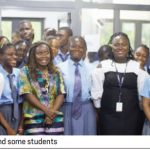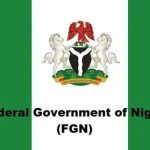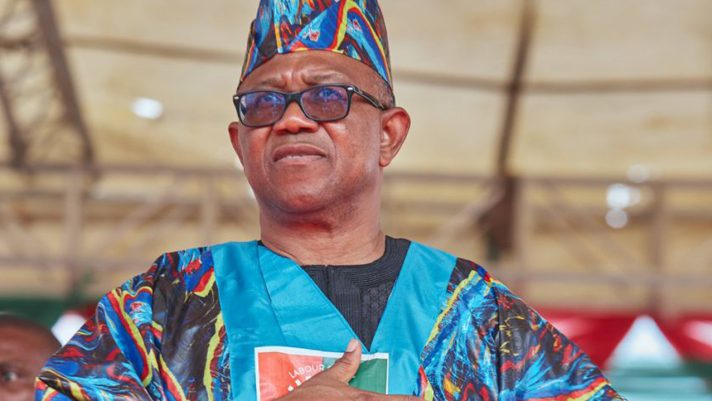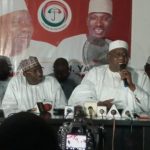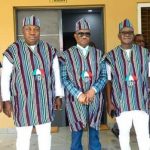By Leo Sobechi, Deputy Politics Editor, Abuja

Peter Obi
The nomenclature ‘Obidient’, which stems from the name of the LP presidential standard bearer, Mr. Peter Obi, captured the mood of the youths, who, in the beginning, not only shunned partisan politics, but resolved belatedly to yearn for inclusion in Nigeria’s democratic experience.
They saw in the former governor of Anambra State, a rallying point to make a statement in the 2023 general elections. It is not yet settled whether the outcome of the disputed February 25 presidential poll in which their mascot was placed third, was a function of his late entry into the presidential contest or as a result of the lack of structure, which his rivals accused him of.
But, how the journey began bears some relevance to the entire momentum, which the Labour Party and the Obidient Movement enjoyed. Obi was the presidential running mate to Alhaji Atiku Abubakar in the 2019 presidential election, which was won by President Muhammadu Buhari.
On May 24, 2022, Mr. Obi officially resigned from the Peoples Democratic Party (PDP) on which he contested the 2019 poll. Having quit PDP, the next day Obi traveled to the United Kingdom, where he met with a former Conservative Party British Prime Minister, Boris Johnson.
Upon his return to Nigeria, on May 27, 2022, the former Anambra State governor joined the Labour Party (LP). Three days later, precisely on May 30, Obi emerged winner of the LP presidential primary held at Asaba, Delta State.
The Anambra State governor had declared that LP aligned with his style, stressing that it was better for him to fail doing the right things than triumph through underhand means. The LP presidential candidate was alluding to the PDP presidential primary in which financial inducement helped to determine the winner.
Labour Party is like home and it suits “our aspirations and my mantra of taking the country from consumption to production,” Obi had declared.
Not long after he emerged as LP’s presidential candidate, Obi embarked on shuttle visits to different foreign countries, including United States, Canada, Germany and United Kingdom, in a bid to market his candidacy and political platform.
One notable trip that the LP presidential contender undertook, which helped to place him and his platform at the centre of national political discussions was the visit to Egypt. He said he traveled to Egypt to learn first hand how the country was able to solve its energy, that is, electricity problems and achieve 24 hours of daily supply of electricity.
Those international travels helped to mobilise youths from different parts of the country to stage what they called ‘Million Man’ marches in various state capitals. The carnival-like marches caught on with the GenZ youth demographics, who in turn resolved to take part in the electoral process.
Next to their participation in the city marches, during the Continuous Voter Registration (CVR) exercise by INEC, massive population of youths and women thronged the various registration centres. A whole lot of new voters identified with the new wave, supported by some salient innovations in the electoral systems that promised a new era of credible polls.
There is nothing to show, which had more appeal to the young voters than the other, between the candidacy of Obi on LP platform and the improvements on the electoral system. The enactment of the Electoral Act 2022, with its far reaching stipulations, particularly the mandatory transfer of poling unit results of balloting to the INEC server, came as an icing on the cake.
All things were working together for good as youths swarmed around the LP as the new platform of choice removed from the All Progressives Congress (APC and Peoples Democratic Party (PDP), which were reckoned as Siamese twins of Nigeria’s political corruption and impunity.
Some watchers of Nigeria’s political evolution believe that LP’s popularity with young people could be explained by two unrelated developments in the country. First, former President Olusegun Obasanjo had been on the forefront of calls a new political orientation, otherwise known as Third Force to serve as a credible alternative to the two mega parties-APC and PDP.
Attempts by some democracy cum rights activists to birth the Third Force prior to the 2019 general elections could not bear fruit owing to timing and paucity of funds to drive the formation of broad-based national political platform.
The National Political Consultative Front (NCFront), which was driving the process was bogged down by debates over strategies and composition of officers. By March 8, 2022, the group disclosed that a committee made up of its partners and stakeholders was working to adopt a political platform that would become the ThirdForce.
In a statement by Bilikis Bello after a meeting held at the Labour House in Abuja, which was presided by Prof. Pat Utomi, the group disclosed that the fusion and transition of the mega party cum ThirForce Movement had put together a “harmonization and implementation committee.”
committee made up of its partners and stakeholders was working to adopt a political platform that would become the ThirdForce.
In a statement by Bilikis Bello after a meeting held at the Labour House in Abuja, which was presided by Prof. Pat Utomi, the group disclosed that the fusion and transition of the mega party cum ThirForce Movement had put together a “harmonization and implementation committee.”
According to Bello, chairmen and representatives of the National Rescue Movement (NRM), African Democratic Congress (ADC) and Peoples Redemption Party (PRP), attended the meeting.
“Negotiations were finalized and ratified on the allied political party to be adopted as the third force mega party for the 2023 general election.
“The terms of reference of the committee, include ensuring smooth harmonization and consummation of the fusion of coalescing partners and stakeholders at the wards, local government, states and national levels of the third force adopted party at the end of this month,” the statement noted.
Bilikis Bello disclosed that former chairman of INEC, Prof. Attahiru Jega, President of Nigeria Labour Congress (NLC), Ayuba Wabba and former Deputy Governor of Central Bank (CBN), Prof. Kingsley Moghalu, sent goodwill messages to the conference.
Consequently, in May 2022, the Communications Executive at the NCFront Secretariat, Bilikis Bello, disclosed that Labour Party had been adopted as platform of choice.
“This historic adoption of the Labour Party was made possible by the new rapprochement between the leadership of the Labour Movement and the hierarchy of the Labour Party; an emergent solidarity jointly spearheaded by NLC President, Ayuba Wabba and the Trade Union Congress (TUC) President, Quadri Olaleye, both of whom have since personally revalidated their membership of the Labour Party by formally registering with the party last week.
“With the adoption of Labour Party as our Third Force Mega Party, the NCFront has commenced the fusion of its structures of over 20 million members and supporters nationwide into the party,” Bello stated.
its “people centered Pan-Nigerian nature than can inclusively serve the interests of all Nigerians.”
The outcome of the recent presidential and National Assembly elections shows that LP gave a good account of its platform and presidential candidate. Obi and the party did much to revolutionalise the way electioneering are conducted without heavy emphasis on money and godfathers. As the last lap of the 2023 election cycle holds this weekend, the challenge before the LP and its Obidient Movement include how to sustain the momentum it has engineered in youth inclusion and integrity of campaigns.
Can the members of LP and Obidient Movement continue to own the mobilization of citizens or slide to the usual tradition of hanging on strong men of means and property instead of integrity and proven track record?
Former Vice President and PDP presidential candidate, Alhaji Atiku Abubakar, expressed surprise at the mileage covered by Obi and the Obidient Movement. Short of asserting that the success story would be a flash in the pan, Atiku went down memory lane to explain the LP presidential candidate left PDP in hurry.
Without giving any categorical insight as to whether he would have still chosen Obi as his running mate or the propriety of his aspiration to contest the 2023 presidential poll despite the zoning arrangement, Atiku declared that Obi was frightened away by the PDP governors.
The former Vice President, who addressed a press conference in Abuja last Friday, disclosed that the LP standard bearer became afraid when governors elected on the PDP platform insisted that they must elect presidential candidates from within their fold.
Atiku stated: “I think Peter was in a rush. He was afraid of the demands of PDP governors. When the campaign started, and our PDP governors sat down and said they must produce the presidential and vice presidential candidates, the chief of staff among themselves, Peter got scared and left.
“I did not get scared. I stood up against the governors. When we founded the PDP, some of them (governors) were perhaps in secondary schools or universities. So, why should I be afraid? So, I stood up and I fought them. They fought me and I fought them and I won the primary election.
“So, if he was there, nothing could have stopped him from becoming a running mate because I had the right to choose whoever I wanted as my running mate.
“So, questions of whether I will work with Peter or whether he wounded PDP chances? Well, he did to some extent, because all the votes he polled were PDP votes in South-South and South-East. But, whether he will achieve his ambition or not, is left for God to decide.”
However, while Atiku remarked that Obi and LP ate deep into PDP’s vote banks in Southeast and South/South, members of the LP decried the insistence of the former Vice President on contesting the Presidency against Southern candidates who left the field for him in 2019.
After 24 years of unbroken practice of democratic governance, it is generally believed that Nigeria’s politics is in dire need of systemic recalibration. That need seems to be the major thrust of the LP and Obident Movement.
How far the groups are able to sustain their momentum and carry through to the next election cycle depends on a combination of factors. These factors include the final resolution of the 2023 polls to determine the composition of the National Assembly as well as the possibility of defections and leadership crisis in LP, which could be stoked by external forces.
Source: The Guardian

